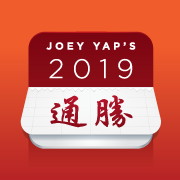There are plenty of misconceptions surrounding Feng Shui and many are confused by it. Is Feng Shui a religious thing? Do you need to believe in it? If you place several 'Lucky Cat' figurines around the house, will this bring you good fortune?
With the growing interest in Feng Shui around the world over the years, the definition of Feng Shui has gone wacky, leading to confusion. Not to mention the general misconception of associating Feng Shui with object placements.
"First of all, Feng Shui is not about the art of placement, nor it is about interior design. This New Age Feng Shui is a system based on placements of so-called made-in-China good luck objects, ornaments or trinkets. These man-made objects do not generate Qi or cosmic energy on their own. Perhaps if you believe in these objects, it may probably work. Otherwise, these are just decorative items," says Joey Yap, Founder and Chief Consultant of Joey Yap Consulting Group Sdn Bhd.
"Classical Feng Shui is about focusing on the alignment of Qi from the natural environment based on direction, location, time, land formation and water formation. You do not need to believe in nature in order for nature to work," He explained.
"Classical Feng Shui did not advocate the need for object placement. Feng Shui was an art of assessing the quality of life through observations and analysis of the persons' living environment. It was about a metaphysical science where one learnt to recognise and tap into the Qi of the living environment to help endeavours in life," he noted.
"Feng Shui is used for corrective, constructive or predictive purposes, given its divination or forecasting nature," Yap elaborates.
In a nutshell, Classical Feng Shui was a serious study of how the unseen energies in our living environment affect the people living or working in that particular area and in a certain period of time.
The four important factors in Feng Shui are Environment, Building, Residences and Time.
Environment
In classical Feng Shui, it covers natural "Qi". "Qi" is something like energy, just like we have Qi in human body, in universe and Qi in environment.
The power of Mother Nature call Qi - the flow or energy. The idea of Classical Feng Shui is to tap this natural Qi flow in our environment.
Building
It is to locate a building in a strategic location where you tap the ying and yang energy from the environment.
We study the space of the building, whether is tight or narrow to receive the Qi. Qi doesn't appear by putting the statue at the corner, because Qi is produced by nature, it is not manmade.
Time
Qi flow is cyclical. We have day and night, we have time and changes. We also have emotional cycles whether happy or sad moments. We go through the life cycle of age too. At different times, the quality of Qi also changes in environment.
People
Part of the Feng Shui calculation is to access how these changes are affecting the building and people too.
We can calculate this by using astrology by taking a reference chart and matching it to the first three factors (environment, the building and the time) to get good feng shui.
One of the most frequently asked questions posed to Yap was whether object placement was needed to harness good feng shui.
Again and again, he has replied that Classical Feng Shui was not about object placement. Feng Shui has nothing to do with interior design. Feng Shui was practical. Its aim was to improve the quality of life of the occupants of a home, and not dictate their personal taste in décor or artwork. Other questions included the colour of the walls, furnishings, carpets or curtains; and the types of furniture, paintings and art in Feng Shui practice.
"Again, this is really about personal choices. Colours have more psychological impact on you than an actual Feng Shui effect. However, this is not to say that colours have absolutely no Qi effect. They do, but a patch of colour in certain rooms will not affect the Feng Shui of the property substantially. Simply put, if you don't like the wall colour in your room, repaint it."
"Whether you love art décor furnishing, baroque style, Balinese or minimalist, your choice of furniture, paintings and art or any form of aesthetic decoration is all up to you."
"Briefly, I can assure you that the types of material your home is made of, the number of rooms, doors and steps on the stairs do not hold any impact on the Feng Shui of your home. Neither does having a cactus plant in the house! These are either a matter of superstition, symbolism or merely incorrect concepts," he said.
There was "no one object that ruled them all" in classical Feng Shui. Different techniques were employed to tap into Qi, such as water placement for example, but from Yap's personal standpoint, he was always a firm believer that things should be kept as natural as possible. After all, if the Qi is good, then no further cure or embellishments are needed."
"Practice some practical common sense when it comes to interior decorating and design, and learn to tell the difference between a psychological effect and a Feng Shui one. On that note, I am sure you will have no problem turning your house into a home," he advised.
Joey Yap is the founder of the Joey Yap Consulting Group, a global organization devoted to the teaching Feng Shui, BaZi, Mian Xiang (Face Reading) and other Chinese Metaphysics Subjects. He is also the Chief Consultant of Yap Global Consulting, an international consulting firm specializing in Feng Shui and Chinese Astrology services and audits. He can be reached via Facebook at www.facebook.com/JoeyYapFB








